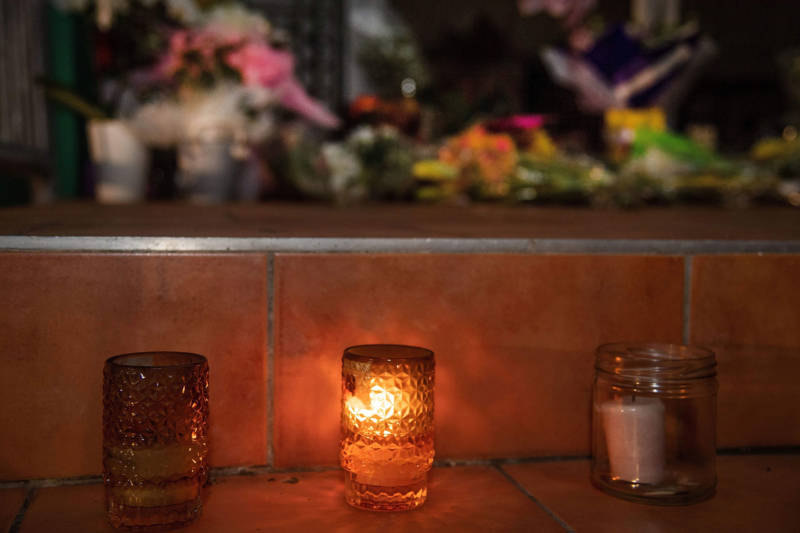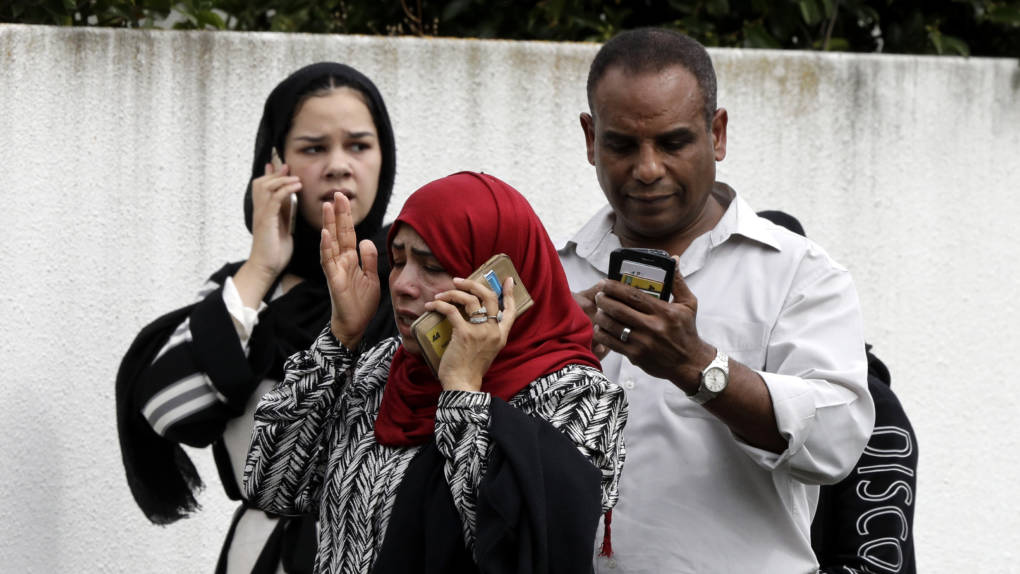“It’s also the case that we’re calling on neighbors to stand with each other to say that anyone who’s going to a synagogue, a gurdwara, a church or a mosque should feel free to worship as they please,” Billoo said. “And then we’re urging Muslims to go to the mosque today to not be scared off, to have faith that God will protect us, that our neighbors and our communities will protect us, that we should not back away from practicing our religion freely because of this tragedy. Though we understand different people experience fear in different ways and that today will be a very difficult day for people who choose to go to the mosque or choose to stay home.”
Washington, D.C.-based Muslim Advocates, a leading national Muslim civil rights organization, said its representatives had spoken with Google, Facebook and Twitter urging them to remove video of the attack reportedly posted by the alleged 28-year-old Australian gunman, Brenton Tarrant.
Australian Prime Minister Scott Morrison described Tarrant as “an extremist, right-wing, violent terrorist.”
Billoo called on people not to disseminate video of the attacks.
“The videos are very triggering, and we want to make sure that we’re respecting the deceased and their families,” Billoo said. “In addition, I think though it’s important that advocates and law enforcement study the videos in an attempt to help protect us from future attacks, that they really shouldn’t be available on social media for the kind of consumption that is happening right now, and so it is important that social media companies think responsibly about whether or not they want to host these videos. And my understanding is that the videos were themselves a violation of the community standards that most of the platforms already enforce.”
Twitter said it has suspended Tarrant’s account and is working to remove the footage. Facebook said it has removed the video, and Google said it was working to take the footage off its YouTube. But those companies and other online services were fighting against numerous attempts to post the video.
“Since the attack happened, teams from across Facebook have been working around the clock to respond to reports and block content, proactively identify content which violates our standards and to support first responders and law enforcement,” Mia Garlick, head of communications and policy for Facebook in Australia and New Zealand, wrote in an email. “We are adding each video we find to an internal data base which enables us to detect and automatically remove copies of the videos when uploaded again. We urge people to report all instances to us so our systems can block the video from being shared again.”
The attack prompted California Gov. Gavin Newsom to say on Twitter that California stands with New Zealand and Muslims everywhere.
He said the hate that has fueled these horrific and cowardly acts must be called out and referenced shooting massacres at religious sites in Pittsburgh, Charleston, South Carolina, and Quebec City, Canada.

